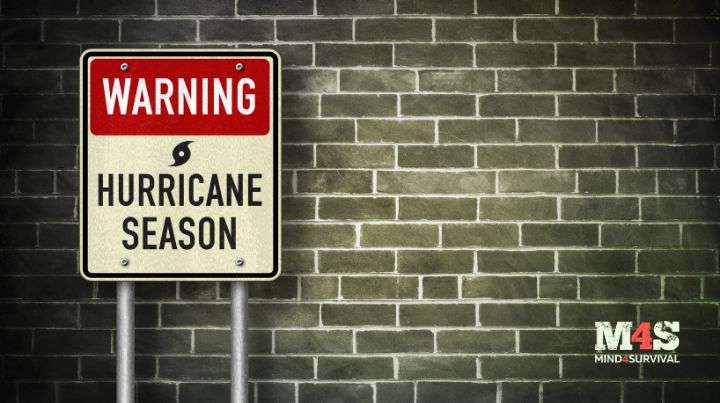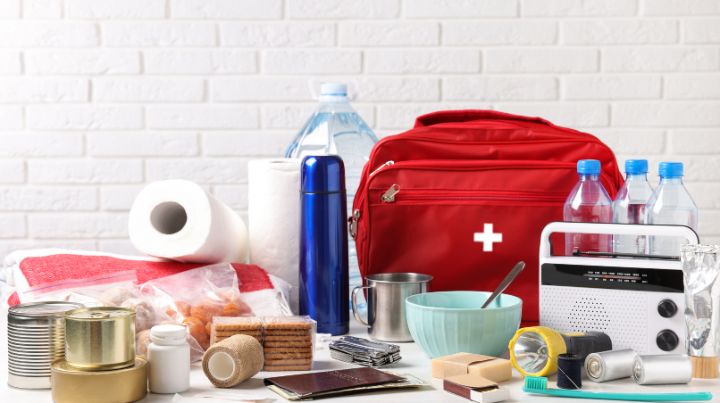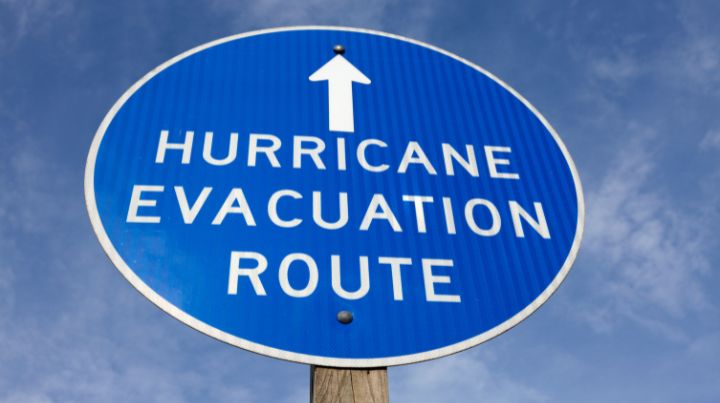Apartment Preps for Hurricanes

I’ve experienced a few hurricanes while living in an apartment in Houston, Texas. After Hurricane Harvey, we had a huge influx of new tenants moving from flooded and unlivable homes. Fortunately, our apartment was in a neighborhood that escaped much of the damage.
Living in an apartment offers unique challenges and considerations when preparing for a hurricane. Unlike houses, apartments have a few constraints, such as limited storage space and potential dependence on building management when making home improvements. These challenges should not deter you. Here are tips for how apartment dwellers can prepare effectively for a hurricane.
Understand the Difference between a Hurricane Watch and a Hurricane Warning
When a hurricane approaches, weather experts will announce that your area is on hurricane watch or a hurricane warning. A hurricane watch is issued when the storm is predicted to arrive within 36 hours. This gives you time to prepare. Once a hurricane warning is issued, the storm is set to arrive within 24 hours. It’s good to know the difference, but the truth is, you should prepare now while you have lots of time.
Hurricane Risks
If you’ve never experienced a hurricane, here are the potential risks:
Flooding is one of the most common results of a hurricane. Heavy rains and storm surges, especially if you live near the coast, will cause flooding.
Another risk is wind damage from heavy winds that can cause flying debris, knock down trees and power lines, and damage structures.
Power outages are common during and after a hurricane; they can last for days or even weeks, as the power company struggles to get repairs done in multiple areas.
Finally, hurricanes cause disruptions in the supply chain, leading to limited food, water, gasoline, and medical supplies.
Build an Emergency Kit
Here’s a list of what you need to include in your emergency kit:
Food
Include at least a week’s worth of food that does not need a lot of effort to prepare: energy bars, canned food, “just add water” meals (dehydrated or freeze-dried foods), crackers, etc. Include some comfort food such as chocolate, candy, and chips. Don’t forget the manual can opener!
Water
One gallon per person per day is the guideline.
First Aid
In addition to the basic first aid contents, personal prescriptions, eyeglasses, contact lenses, etc., it is also a good idea to include a pocket first aid manual.
Communications
Keep a battery-operated or crank weather radio, charged cell phone, and extra phone chargers.
Personal Hygiene
Make sure to stock plenty of toilet paper, trash bags, and moist towelettes.
Lighting, Fire, and Warmth
Flashlights with extra batteries, propane or other alternate fuel stove, and plenty of candles
Basic Tools
Think knives, multi-tools, wrenches, and pliers.
Entertainment
You will be happy to have some books, board games, cards, and toys.
Documents
Keep copies of your important papers, such as personal identification, insurance policies, and bank records, in a waterproof container.
Cash
Keep some cold, hard cash on hand. Electronic payment machines often stop working during a power outage, and transactions are “cash only.”
Create an Emergency Plan
Before anything happens, plan what you will do in case you need to evacuate. Do you have family members out of the area with whom you can stay? Learn about available evacuation shelters in your area and whether they allow pets if you have them.
Refer to a map of your vicinity and identify all possible routes out of your city.
Set up a communication plan with your family and friends so you can keep in touch during and after the hurricane.
Before the Hurricane
Here are some ideas on what to do before a hurricane is expected to make landfall:
Clean your bathtub, place a drain stop, and fill it with water. If you lose access to tap water, you can use bathtub water for hygiene and cleaning purposes.
Check with your apartment management on what they allow you to do to protect your unit, such as installing plywood to protect windows and sliding glass doors. Or, if they don’t allow it, use heavy-duty tape to create an “X” pattern on windows to minimize shattering.
Secure any outdoor patio furniture or bring them indoors, as they fly off and become dangerous during high winds.
If your area is prone to flooding, bring valuable items and electronic appliances to a higher floor, or at the very least, take them off the floor.
Fill up your gas tank. I’ve seen gas stations closed for weeks after a hurricane, so it’s best to fill up before.
Take photos and document your belongings in case you have to file a claim with your renter’s insurance.
Charge your phone, your backup chargers, and other electronics.
Pack a go bag in case you have to evacuate: clothes, toiletry kit, medications, and important documents. Don’t forget to pack your pet’s essentials, just in case.
During the Hurricane
If you are sheltering in place, stay safe with these tips:
Stay informed of emergency updates and instructions. Monitor the weather by getting reports from TV, radio, or the internet, Sign up for alerts from the National Weather Service or a reliable weather app.
Stay indoors. If high destructive winds develop, stay away from glass windows and doors. Identify the safest place in your home, such as an interior bathroom or room.
Conserve water and power.
After the Hurricane
Once the hurricane has passed through your area, you’ll want to inspect your apartment for any damage and report it to your apartment management. If you have personal property damage that your renter’s insurance may cover, document the damage by taking photos and writing down any details. File a claim with your insurance company.
If your area is under a severe threat, wait for the official all-clear announcement from authorities before going outdoors. You’ll also want to know what areas in your immediate vicinity are severely impacted or may still be impassable. After the last hurricane, I checked social media (such as Nextdoor.com) to find out what areas in my neighborhood were damaged, flooded, or blocked by fallen trees before attempting to drive out.
Avoid wading through floodwaters: they contain toxic and hazardous materials and may be electrically charged from damaged power lines.
If you lost power for several hours, inspect the food in your refrigerator and freezer. Do not taste the food to determine if it’s safe to eat. FoodSafety.gov has a handy list of what to keep and what to discard. My rule of thumb is “When in doubt, throw it out.”
Conclusion
Preparation is the key to safety and comfort for you and your family. Don’t get caught unprepared – take the steps to prepare now before a hurricane happens.
Additional Resources:
- Emergency Binders: What Should Preppers Put in Them?
- Evacuation List Items You May Overlook
- What Should You Do AFTER a Hurricane?
- Is a Home Freeze Dryer Worth the Investment?
Don't Miss Out!
Join the thousands of people who rely on Mind4Survival preparedness advice by subscribing to our FREE newsletter.
- Practical preparedness information
- Zero Spam
- < 0.25% of people unsubscribe




Join Mind4Survival!
Stay informed by joining the Mind4Survival! 100% Secure! 0% Spam!
Follow Us!
Affiliate Disclosure
Mind4Survival is a free, reader-supported information resource. If you make a purchase through our link, we may, at no cost to you, receive an affiliate commission.




Something else to add to the list is bug spray and solar lights (put them in a flower pot (outside to charge up) and if the power ever goes out take them inside for safe inside lighting).